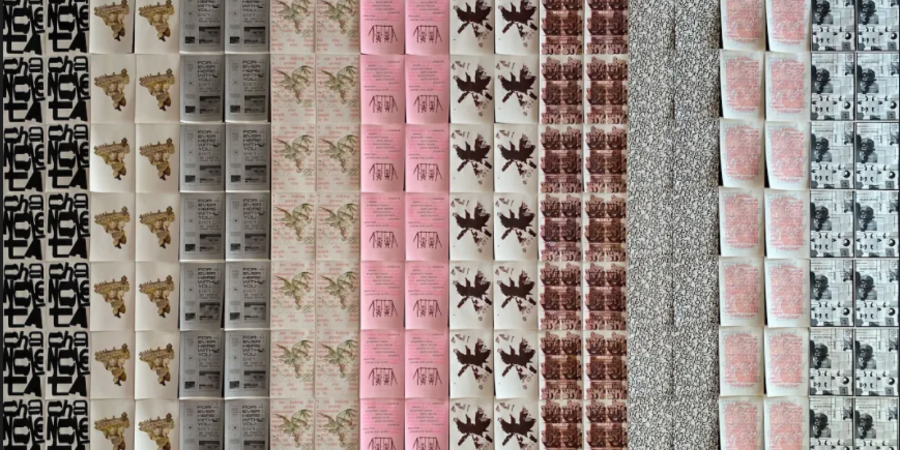Bring It Home

Contact:
OPEN TO THE PUBLIC | Featuring 10 artists and designers engaged with issues of equity and identity, Bring It Home uses gift-economy strategies to enlist viewers as collaborators and expand territory for diverse voices. Poster artworks are distributed free to audiences, via mail or in-person pickup, with the invitation to install the show in private or public spaces. The exhibition title speaks to people reinventing ideas of “home” during quarantine, as well as artists claiming and disrupting visual languages with personal meaning.
Bring It Home exists in spaces determined by individuals who hang up posters. We encourage people to document the show as they install or encounter it, and share images via social media. Bring It Home also has a traditional exhibit inside Usdan Gallery. A dedicated project website (launching March 2) functions as a parallel exhibition, with additional resources and artist information.
Works by Pouya Ahmadi; Hazel Mandujano and Juan Capistran; Cole Lu; Visual Arts faculty Mary Lum; Helina Metaferia; Silas Munro; Adriana Monsalve and Homie House Press; Rin Kim Ni; Ramon Tejada MFA ‘03; and Kelly Walters. Curated by Ramon Tejada and Usdan Gallery Director Anne Thompson.
Poster distribution:
By mail: Visit the project website—bringithomeshow.info—and fill out an order form (artworks are free; flat rate postage is $4)
In-person pickup: Bennington College students, faculty, and staff can visit Usdan Gallery, Thursday through Saturday, 1:00-5:00 pm. The gallery is closed to the general public.
Artwork posters were printed at Bennington College’s Word and Image Lab using a Risograph, a 1980s analog method experiencing a renaissance among artists, designers and independent publishers. When the show concludes, a Riso-printed catalog will document the project, including audience-created images and social-media sharing.